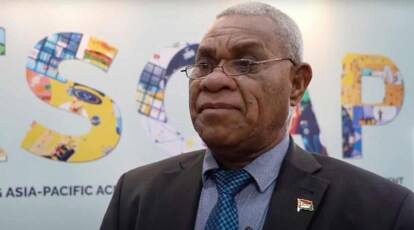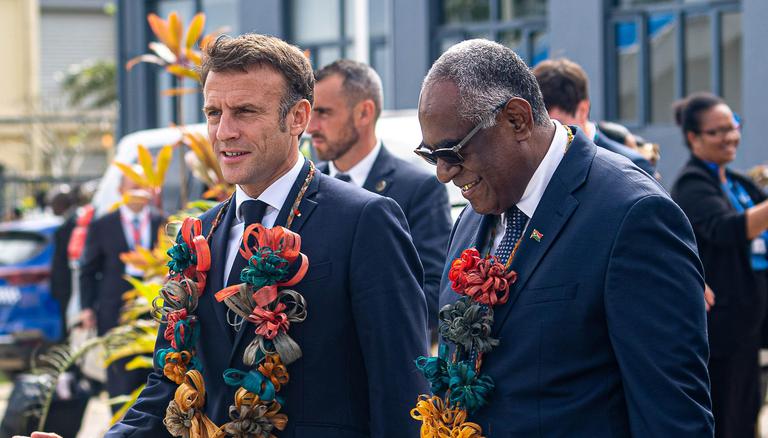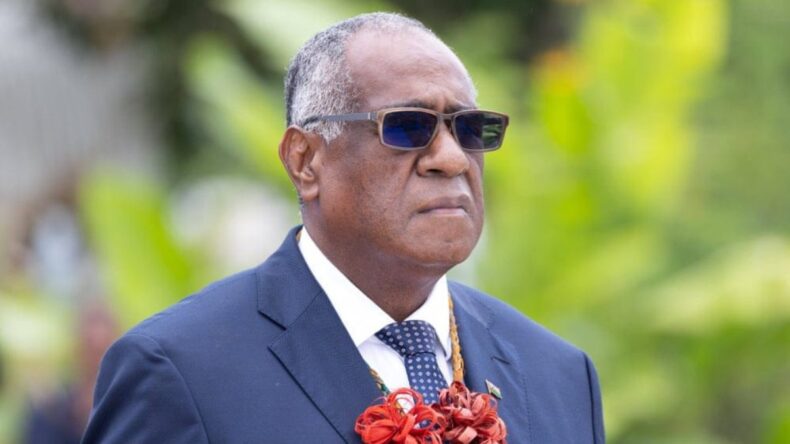Vanuatu’s Prime Minister, Ishmael Kalsakau, expressed concerns about potential instability affecting investment and tourism in the Pacific Islands nation due to the No Confidence Motion initiated against him by the oppositions.
Vanuatu was caught up in a political turmoil and instability when opposition leader Bob Loughman initiated a no-confidence petition with 29 signatures out of 51 lawmakers against the Prime Minister Ishmael Kalsakau.
With the aim of increasing the count of Kalsakau’s government supporters, Jotham Napat resigned from his positions as foreign minister and deputy prime minister on Monday, paving the way for a cabinet reshuffle that successfully regained the support of two lawmakers.
Ishmael Kalsakau’s government boycotted the ‘no-confidence’ motion. He denounced in a televised press conference that he saw this move against him after 8 months of nation elections as ‘irresponsible’ as this could impact the country’s tourism and investment.
Opposition leader Loughman has expressed disapproval of the actions of Kalsakau’s government. He accused Kalsakau’s Government of undermining Vanuatu’s ‘neutral’ stance, including endorsing a security agreement with Australia and raising the minimum wage.

Kalsakau emphasised that in the constitution, it is mentioned that it requires a complete majority to remove a prime minister, and he noted that Loughman lacked the necessary parliamentary support to discuss the motion on Thursday.
He added that the explanations provided by the opposition for removing the prime minister were without any foundation.
The motion’s debate that was anticipated to be held today was postponed to next Wednesday due to insufficient quorum. Only 26 opposition lawmakers, including the speaker, were present at the parliament. The government said this fell short of quorum needed.
In response, Loughman made a statement, asserting that he have the necessary support to establish a new government in the upcoming week, as reported by the Vanuatu Daily Post
Loughman was the former Prime Minister of Vanuatu. His government faced defeat in the SNAP election in 2022. Under the leadership of Loughman, Vanuatu had a closer relationship with China, China funded their infrastructure projects like Parliament, Stadiums and Prime minister’s office as China have strategic interest in this region.
Following China’s signing of a security pact with Solomon Islands, the United States and its allies are working to discourage Pacific Islands nations including Vanuatu from forming security connections with Beijing.
Reason for No Confidence Motion against Vanuatu’s Government: ‘Foreign engagement’ and other concerns
On 7 August, Former prime minister initiated a no confidence motion against Ishmael Kalsakau with the aim of removing him from his position as Vanuatu’s prime minister and calling for the swift election of a new prime minister.
The motion cites concerns over ‘foreign engagement,” particularly focusing on the bilateral security pact that was entered into with Australia. He claims that Kalsakau’s government has compromised the independence and impartiality of the country.
Bob Loughman has himself faced backlash for signing agreements with China during his time in office.
This move was initiated amid the fight for control in the Pacific involving the US and its friends. French President Macron visited Vanuatu and talked about a kind of new imperialism there.

Apart from worries about foreign policy, the motion mentioned various problems within Vanuatu. These included a recent rise in the country’s minimum wage and the loss of skilled workers due to programs abroad. The motion also stated that the Kalsakau government’s actions were hurting the growth of the public sector and accused it of not fulfilling its policy commitments.
In response to allegations made in the motion that his international involvements were harming Vanuatu’s neutrality, Kalsakau dismissed the concerns, stating he wasn’t bothered by broad statements.
The prime minister expressed his continued trust in his government and assured that this action would not hinder the approval of the security agreement with Australia, which is anticipated to be finalized by year’s end.













